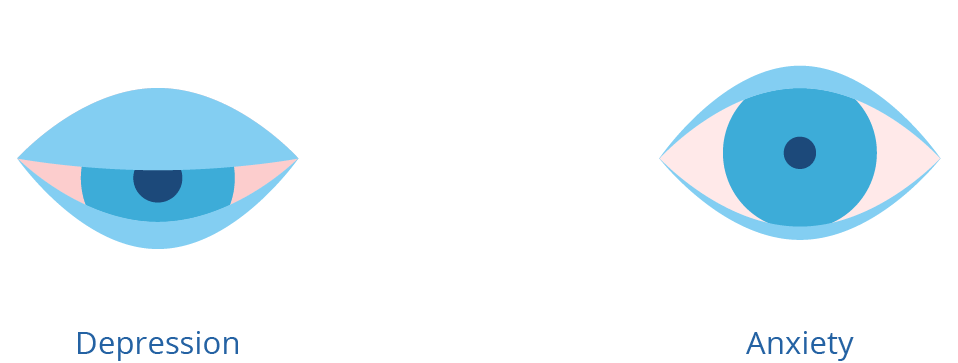Table of Contents
In today's health-focused and fitness-oriented society, we tirelessly seek methods to enhance our physical well-being. This journey often involves meticulous attention to diet, a commitment to regular exercise, and the inclusion of nutritional supplements to optimize our physical health.
Yet, an equally crucial aspect, our mental health, frequently remains overshadowed. As we embark on a quest for complete wellness, it's vital to explore the role of mental health supplements. Do they truly contribute to our mental well-being? Our investigation delves into the world of supplements for mental health, scrutinizing their efficacy and impact on our overall health journey.

Dealing with mental health challenges such as depression and anxiety can profoundly affect your daily life, significantly diminishing your ability to manage everyday tasks and responsibilities. The World Health Organization highlights the gravity of this issue, noting that over 280 million people globally suffer from depression, a condition with far-reaching implications.
Amidst various treatment options, one area that often goes underexplored is the potential influence of diet on mental health. While addressing mental health disorders typically involves a comprehensive approach that may include medication and therapy, examining your dietary habits for potential nutrient deficiencies can be an essential initial step.
A well-balanced diet, rich in specific nutrients, might play a significant role in enhancing mental well-being. This approach underscores the interconnectedness of physical and mental health, emphasizing that what we consume can have a direct impact not just on our body, but also on our mental state.
The 5 Best Supplements For Improving Your Mental Health

Nutrition plays a vital role not only in our physical health but also in our mental well-being. The nutrients we consume can significantly impact brain function and influence our mental state. Understanding this connection is crucial in addressing mental health concerns.
While a comprehensive approach to mental health often includes therapy and medication, addressing potential nutrient deficiencies is a key step. Certain nutrients have been identified as particularly beneficial for mental health, each playing a unique role in brain health and emotional well-being:
- Omega-3 Fatty Acids
- Vitamin D
- Magnesium
- B Vitamins
- Zinc
In the following section, we will detail each of these supplements, exploring their specific benefits and roles in maintaining and improving mental health.
Before incorporating any supplements into your routine, it’s essential to consult with a healthcare professional. They can guide you on the appropriate use of supplements, considering your individual health needs and ensuring they complement your overall mental health strategy.
1. Omega-3 Fatty Acids
One of the first nutrients you should consider taking to boost your mental health is an omega-3 fatty acid supplement.

Omega-3 fatty acids should be at the top of your list when considering supplements for mental health. These essential fats play a critical role in brain health, with two types being particularly important: Docosahexaenoic acid (DHA) and Eicosapentaenoic acid (EPA).
DHA is a key component of the brain, essential for its development and function. This is why Omega-3s, particularly DHA, are often recommended for expecting mothers, as they contribute significantly to prenatal brain development.*
EPA, on the other hand, is known for its anti-inflammatory properties, protecting cells from damage. This protective role extends beyond early development into adulthood, making EPA crucial for long-term brain health.*
The significance of these fatty acids continues throughout life. Deficiencies in Omega-3s, particularly DHA and EPA, have been linked to cognitive issues like 'brain fog.' They also play a role in the structural integrity and protection of brain cells, which is critical in preventing neurodegenerative disorders such as Parkinson's and Alzheimer's diseases.*
Incorporating an Omega-3 supplement into your diet can be vital in safeguarding your mental health. However, it's important to choose the right supplement. Look for one that contains both EPA and DHA to maximize the mental health benefits.*
For those seeking sources of Omega-3s, fish oil pills are a popular choice. However, alternatives like algae oil pills or vegan flaxseed oil capsules are excellent for individuals concerned about environmental sustainability or those following a plant-based diet. These provide the essential Omega-3 fatty acids in a sustainable and vegan-friendly form, ensuring everyone can access these crucial nutrients' mental health benefits.
2. Vitamin D
Vitamin D, often hailed as the 'sunshine vitamin,' is a fat-soluble nutrient that plays a pivotal role in both physical and mental health. While our bodies can synthesize Vitamin D from sunlight exposure, dietary sources are also crucial to meet daily requirements.

Beyond its well-known benefits for bone health, Vitamin D significantly impacts mental well-being. Research indicates a strong correlation between low levels of Vitamin D and various mental health issues. These include depression, mood disorders, and premenstrual mood symptoms. Notably, there's evidence linking Vitamin D deficiency with seasonal affective disorder (SAD), a form of depression that typically occurs during the darker months of fall and winter when sunlight exposure is reduced.*
The challenge with Vitamin D is its limited presence in natural food sources, leading to widespread deficiencies globally. To boost Vitamin D levels, look for foods fortified with this nutrient, such as certain milk varieties and breakfast cereals. If dietary sources are insufficient, supplements can be an effective alternative. Options include Vitamin D supplements, cod liver oil, or multivitamins containing Vitamin D.*
Ensuring adequate Vitamin D intake is essential for maintaining not just physical health but also for supporting mental health, particularly in combating mood-related disorders and seasonal depression.*
3. Magnesium
Magnesium, a vital mineral often overlooked in discussions about mental health, plays a crucial role in both our physical and mental well-being.

While magnesium is widely recognized for its role in regulating blood pressure, heart rate, and bone strength, its impact on brain health is equally significant. Magnesium is integral to brain chemistry regulation, influencing various neurological processes.*
A deficiency in magnesium has been identified as a potential contributing factor to depression and other mental disorders. Encouragingly, some research suggests that magnesium supplementation can be beneficial for individuals suffering from these conditions, with studies indicating a possibility of rapid improvement in symptoms.*
Magnesium is naturally abundant in foods rich in fiber such as whole grains, vegetables, legumes, and nuts. To ensure adequate intake, especially for those who might not get enough from their diet, magnesium supplements can be an effective option.*
Understanding and addressing magnesium levels can be a pivotal aspect of managing mental health, offering a natural and accessible means to support mental wellness alongside traditional treatments.*
4. B Vitamins
Another one of the best vitamins for mental health is your B Vitamins. This is a group of vitamins (in other words, a "complex") that include eight different water-soluble vitamins: B1, B2, B3, B5, B6, folate, and B12.
 B Vitamins, a complex of eight distinct water-soluble vitamins (B1, B2, B3, B5, B6, Folate, and B12), play a pivotal role in maintaining mental health. These vitamins are crucial for various brain functions, including producing key neurotransmitters like serotonin and dopamine, essential for mood regulation.*
B Vitamins, a complex of eight distinct water-soluble vitamins (B1, B2, B3, B5, B6, Folate, and B12), play a pivotal role in maintaining mental health. These vitamins are crucial for various brain functions, including producing key neurotransmitters like serotonin and dopamine, essential for mood regulation.*
The link between B Vitamins and mental health is particularly evident when considering the impact of deficiencies in these nutrients. Vitamin B-12 and Folate, for instance, are often highlighted in research focusing on mental health. Deficiencies in these vitamins have been frequently observed in individuals experiencing depression and other mood disorders. Supplementing with B Vitamins, especially B-12 and Folate, has shown promise in alleviating some mental health symptoms, offering a potentially effective strategy for mood management.*
This topic is especially relevant for those following a vegan diet, as some B vitamins, notably Vitamin B-12, are naturally found in significant amounts primarily in animal-based foods. Vegans, therefore, need to be particularly mindful of their B-12 intake. A vegan-friendly B-12 supplement can be an excellent starting point for vegans looking to support their mental health through nutrition.*
Ensuring adequate intake of B Vitamins, either through diet or supplementation, is crucial for mental well-being, highlighting the importance of these nutrients in maintaining a balanced mood and overall mental health.*
5. Zinc
Zinc is an essential mineral that plays a vital role in various bodily functions, making it one of the best supplements for mental health. Beyond its well-known contributions to immune system support, virus defense, blood clotting, and wound healing, zinc's role in mental health is increasingly recognized.*

Clinical studies have established a strong connection between zinc levels and mental health, particularly depression. Low zinc levels have been consistently linked with higher instances of depression. Encouragingly, clinical trials indicate that zinc supplementation in individuals with deficiencies can lead to notable improvements in depression and even psychosis.*
Zinc is most abundantly found in foods like shellfish and red meat. This makes it a nutrient of particular interest for those following a vegan or vegetarian diet, as their dietary choices may naturally include less zinc. For individuals on such diets, it's important to be mindful of zinc intake and consider supplementation if necessary.*
Understanding and managing zinc levels can be a key component in maintaining mental health, especially considering its significant impact on mood disorders and overall brain function.*


